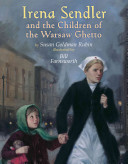
This is the only biography for children about the remarkable Holocaust heroine Irena Sendler, who smuggled over 400 children out of the Warsaw Ghetto.

This is the only biography for children about the remarkable Holocaust heroine Irena Sendler, who smuggled over 400 children out of the Warsaw Ghetto.
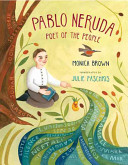
Once there was a little boy named Neftalí who loved wild things wildly and quiet things quietly. From the moment he could talk, he surrounded himself with words. Neftalí discovered the magic between the pages of books. When he was sixteen, he began publishing his poems as Pablo Neruda. Pablo wrote poems about the things he loved–things made by his friends in the café, things found at the marketplace, and things he saw in nature. He wrote about the people of Chile and their stories of struggle. Because above all things and above all words, Pablo Neruda loved people.
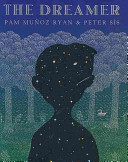
A fictionalized biography of the Nobel Prize-winning Chilean poet Pablo Neruda, who grew up a painfully shy child, ridiculed by his overbearing father, but who became one of the most widely-read poets in the world.
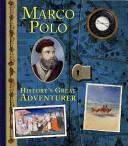
Travel along the Silk Road to medieval China with Marco Polo as your guide. Meet the warlord Kublai Khan and sail through pirate-infested seas in search of riches beyond measure. Including booklets, foldouts and maps, as well as excerpts from The Travels of Marco Polo, this beautifully illustrated volume illuminates the adventures of history’s greatest storyteller.
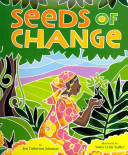
A picture book biography of scientist Wangari Maathai, the first African woman and first environmentalist to win a Nobel Peace Prize (in 2004), for her work planting trees in her native Kenya.
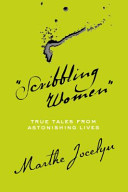
In 1855, Nathaniel Hawthorne wrote to his publisher, complaining about the irritating fad of “scribbling women.” Whether they were written by professionals, by women who simply wanted to connect with others, or by those who wanted to leave a record of their lives, those “scribbles” are fascinating, informative, and instructive. Margaret Catchpole was a transported prisoner whose eleven letters provide the earliest record of white settlement in Australia. Writing hundreds of years later, Aboriginal writer Doris Pilkey wrote a novel about another kind of exile in Australia. Young Isabella Beeton, one of twenty-one children and herself the mother of four, managed to write a groundbreaking cookbook before she died at the age of twenty-eight. World traveler and journalist Nelly Bly used her writing to expose terrible injustices. Sei Shonagan left poetry and journal entries that provide a vivid look at the pampered life and intrigues in Japan’s imperial court. Ada Blackjack, sole survivor of a disastrous scientific expedition in the Arctic, fought isolation and fear with her precious Eversharp pencil. Dr. Dang Thuy Tram’s diary, written in a field hospital in the steaming North Vietnamese jungle while American bombs fell, is a heartbreaking record of fear and hope. Many of the women in “Scribbling Women” had eventful lives. They became friends with cannibals, delivered babies, stole horses, and sailed on whaling ships. Others lived quietly, close to home. But each of them illuminated the world through her words.
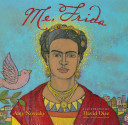
Artist Frida Kahlo finds her own voice and style when her famous husband, Diego Rivera, is commissioned to paint a mural in San Francisco, California, in the 1930s and she finds herself exploring the city on her own.
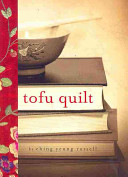
Growing up in 1960s Hong Kong, a young girl dreams of becoming a writer in spite of conventional limits placed on her by society and family.
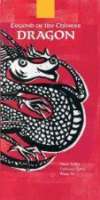
Long ago the people of China lived, worked, and fought under the protection of guardian spirits that took on the appearance of animals, but the children grew tired of war and created a new spirit to protect all the people and bring peace.
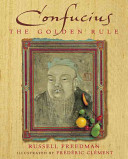
Born in China in 551 B.C., Confucius rose from poverty to the heights of his country’s ruling class. But then he quit his high post for the life of an itinerant philosopher. “The Analects” collects his teachings on education and government, the definition of nobility, the equality of man and the right way and purpose of living, ideas that eventually spread to the West and influenced the great thinkers of the Enlightenment. And five centuries before Christ, Confucius set forth his own Golden Rule: “Do not impose on others what you do not wish for yourself.”